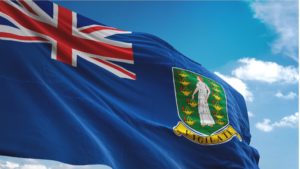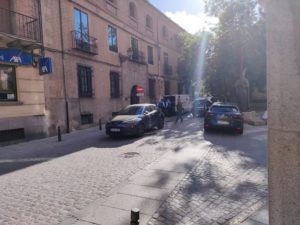On March 13, 7000 Corsican citizens took to the streets of Bastia to protest the death of Corsican nationalist Yvan Colonna, demanding their island’s independence from France. To understand what sparked this protest, it is essential to grasp who Yvan Colonna was.
In 1998, Colonna was the prime suspect in the murder of Corse-du-Sud (Southern Corsica) prefect Claude Érignac. The police believed that Colonna had killed Érignac in a terrorist act, attempting to further his “National Liberation Front of Corsica” (“Fronte di liberazione naziunale corsu” in Corsican, or “Front de libération nationale corse in French;” collectively abbreviated as FLNC). In 1999, Colonna claimed his innocence to the press, and went into hiding soon after. For the next four years, he was widely considered the most wanted criminal in France. Throughout that time, every police station in the country displayed his picture. On July 4, 2003, he was found in a sheepfold in the Corsican Maquis, along with money, weapons, and a travel bag. In 2004, the French government gave Colonna a life sentence. Since then, numerous protests have called for his transfer to a prison in Corsica. However, due to his status as a “prisoner of particular interest,” this measure was not allowed.
How did the current situation start?
Tensions rose on March 2 this year, when Yvan Colonna was attacked in his prison cell. The following is a statement by the prison administration to Le Monde, recounting how the events unfolded. Colonna arrived at the prison gym in the morning. Soon after, a guard arrived with another prisoner. The guard left the other prisoner and left the gym, closing the door behind him. The two prisoners knew each other, and interviews of guards and other prisoners explained that there was no tension between them. He jumped Colonna, putting his foot on his throat for around one minute. Then, he put Colonna’s head in a plastic bag. Eight minutes passed before the guards were alerted. A few days later, Colonna’s extensive injuries led to his passing.
The nationalist’s death led to countless protests in Corsica. Protesters accused the French state of being responsible for Colonna’s murder, as they had refused to transfer him to a prison in Corsica. The protester’s primary demand was Corsican independence. In response, the French government stated that Corsican “autonomy” was on the table.
French Minister of the Interior Gérald Darmanin explained that there was a need to discuss and decide what exactly this autonomous status would entail. As of now, the only French territories with an autonomous status are New Caledonia and French Polynesia. Darmanin explained that Corsica could have a “Polynesian-style status,” meaning that the French state would be in charge of foreign policy, defense, security, public order, and organization of relief. Meanwhile, the Corsican Assembly would decide on other matters, such as school education and health. The Assembly could also implement laws, which would be subject to “specific controls” by the French Council of State.
That said, the French government still needs to agree on what an autonomous Corsica would look like. Incumbent President Emmanuel Macron has just won the presidential vote, yet he will need to wait until June’s legislative elections to form a government. Until then, France will be unable to decide on the matter of Corsica.
Why not insist on independence?
In an article by Le Monde, journalist Mathilde Damgé explains that gaining full independence would not be advantageous for Corsicans. Indeed, in 2018, the poverty rate in Corsica (20%) was higher than in any other metropolitan region of France. The island also had an unemployment rate of 10.9%. This can be partly explained by how Corsican industry is not very diversified, relying heavily on tourism. Moreover, there is very little manufacturing, agriculture, and few sophisticated services like IT or banking. If Corsica were to gain its independence, it would have to deal with economic issues on its own, without any support from the French government. Additionally, leaving France would mean leaving the European Union. According to official doctrine, a region that has just gained its independence from a Union member will automatically be left outside the EU (and its treaties and trade agreements). While France could veto this process, Damgé argues that an independent Corsica would become the 16th country (out of 27) in the EU in terms of GDP.
An article by the newspaper “Ouest France” outlines that many Corsicans would prefer becoming an autonomous state. The journalist, Jennifer Chainay, highlights how 2021’s regional elections saw the majority of Corsicans vote for the autonomist party, rather than the independentist party. Her results illustrate that Corsicans want more liberties, but as a part of France.
Until now, we have spoken about what being autonomous or independent would mean for Corsica and its citizens. But what do French metropolitan citizens think of this? According to research conducted by the French Institute of Public Opinion in March 2022, 53% of the people surveyed were favorable to the idea of Corsica becoming an autonomous state. However, only 35% were favorable to the idea of Corsica becoming independent. This could be explained by the many economic advantages Corsica gives to France, including how it increases France’s exclusive economic zone (EEZ), giving France more sovereignty over the Mediterranean Sea and its resources.
What does this mean for the future of France?
The murder of Yvan Colonna has pushed other French regions to question their status. A month after the French government declared that Corsica could become autonomous, elected representatives of Brittany’s regional council are calling for a change in the status of their region. This has been supported by the vast majority of the regional council. The council’s goal is to obtain legislative, regulatory, and fiscal autonomy. The regional councilor, Marc Le Fur, asserts that this is possible, as the French government has passed broadly similar laws in the province of Alsace. If Paris allows both Corsica and Brittany to become autonomous, other regions may ask the same. One potential solution for France could be giving every region more legislative autonomy, shifting the national system.
However, since April’s presidential elections, talks of autonomy in both regions have slowed. It is possible that Macron’s party has avoided the controversial issue in an effort to win more seats in the upcoming legislative elections. Another reason could be that protests (mainly in Paris) against Macron’s election have driven media attention away from Corsica.
Whatever the reason, Corsica’s status is no longer at the top of Macron’s political agenda. For now, the next few months will be key in determining the future of not just Corsica, but also Brittany, and perhaps the French regional system as a whole.
Featured image by: The Guardian.






